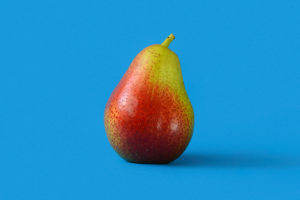Sugar and Skin
We all know that a balanced diet is essential for our overall health, but what about the effect of what we eat on our skin? One common culprit behind skin problems could be an overconsumption of sugar.
While we may enjoy a sweet treat now and then, eating too much sugar can have negative effects on our skin that we might not even realize.
The Link Between Sugar and Skin Aging
When we consume sugar, it enters our bloodstream and interacts with proteins in our body. This process leads to a phenomenon called glycation, where sugar molecules bind to proteins like collagen and elastin. These proteins are crucial for keeping our skin smooth and youthful. When glycation occurs, it causes these proteins to become stiff and less flexible. As a result, our skin becomes more prone to wrinkles and sagging. By consuming too much sugar, we can accelerate the aging process and make our skin appear older than it really is.
How Sugar Contributes to Acne
Another way sugar affects our skin is by triggering acne breakouts. High sugar intake causes an increase in insulin levels, which in turn leads to higher levels of androgens. Androgens are hormones that stimulate oil production in the skin. When our skin produces excess oil, it can clog pores, leading to the development of acne. The more sugar we eat, the more our skin becomes prone to breakouts. This is why cutting down on sugar can often help people reduce their acne symptoms.
Sugar and Skin Inflammation
We may also notice an increase in skin inflammation when we eat too much sugar. This can manifest as redness, puffiness, or even conditions like eczema. Sugar has been shown to promote inflammation in the body, and this includes the skin. When we consume a diet high in sugar, our body produces more inflammatory compounds that can worsen existing skin conditions and create new ones. For those who already suffer from conditions like rosacea or psoriasis, sugar may exacerbate their symptoms and make it harder to manage their skin.
The Impact of Sugar on Skin Hydration
In addition to contributing to aging and acne, too much sugar can also affect the hydration levels in our skin. Sugar can draw water out of our skin cells, leaving our skin looking dry and dull. This loss of moisture can make fine lines and wrinkles more noticeable, further contributing to the signs of aging. To keep skin looking plump and hydrated, it's important to maintain a balanced diet with minimal sugar intake.
How to Protect Your Skin from Sugar's Effects
So, what can we do to protect our skin from the harmful effects of sugar? The first step is to limit our sugar intake. While it's impossible to completely avoid sugar, we can make healthier choices by opting for whole foods that are naturally low in sugar, such as fruits, vegetables, and lean proteins. We should also drink plenty of water to help keep our skin hydrated and flush out toxins that could contribute to skin issues. Additionally, incorporating antioxidants into our diet can help protect our skin from oxidative stress caused by sugar and other environmental factors.
While enjoying sugary treats from time to time is fine, it's important to understand how too much sugar can negatively impact our skin. Whether it's through accelerating the aging process, causing acne, or triggering inflammation, sugar can play a significant role in the health of our skin. By making mindful dietary choices, we can help maintain our skin's health and radiance for years to come.


